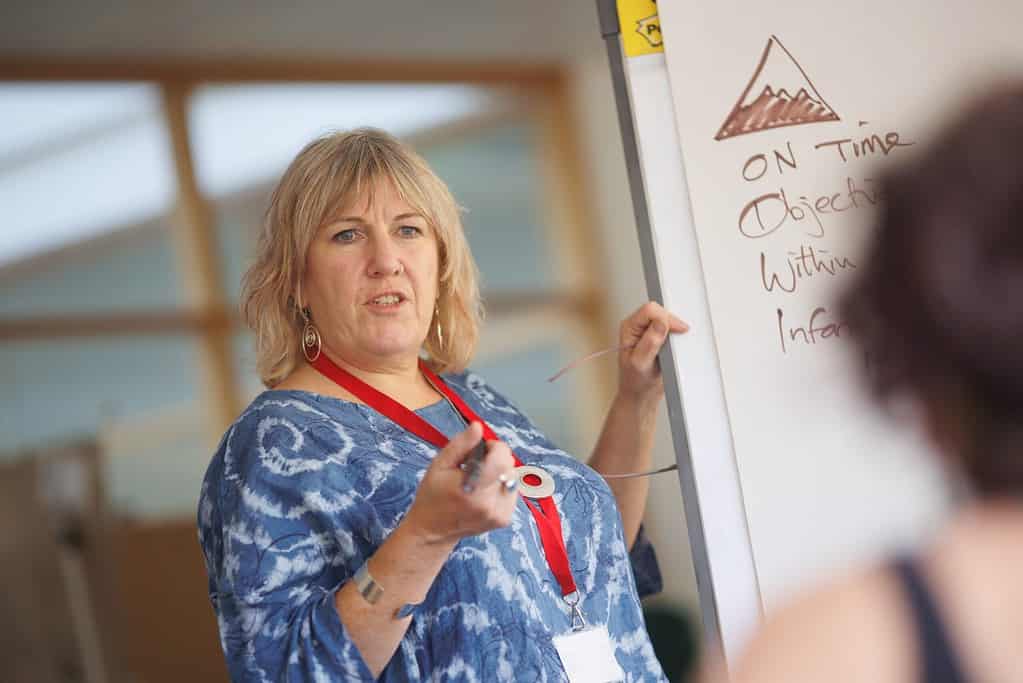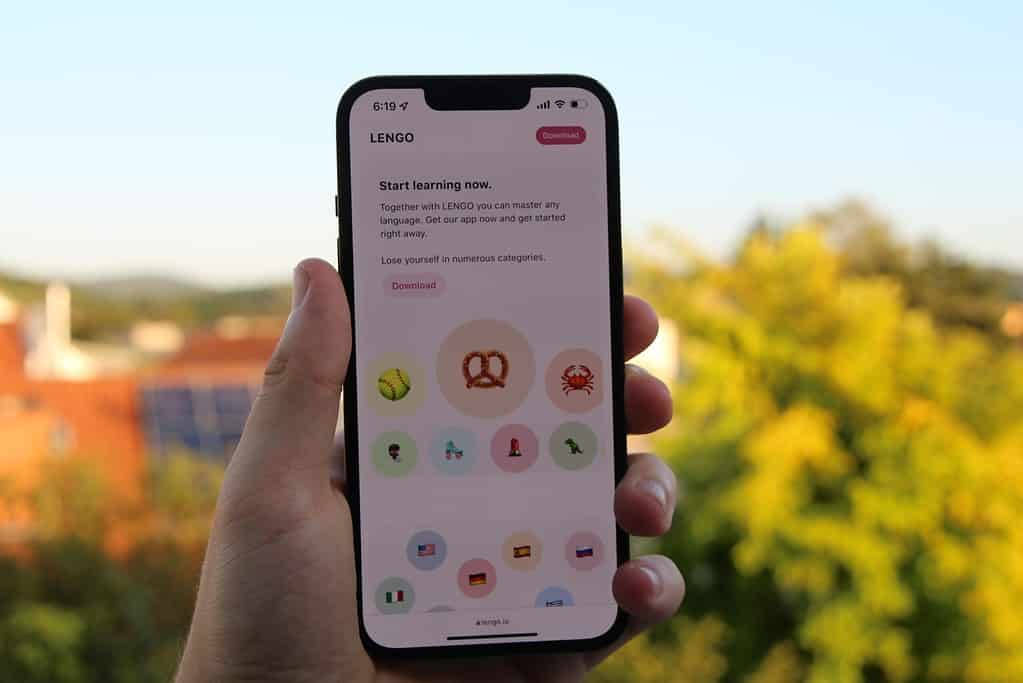Engaging in conversation is one of the most effective ways to learn a new language, and French is no exception. Mastering French conversation not only enhances your speaking skills but also builds confidence and cultural understanding. This article will explore practical tips and resources to help you succeed in your French conversation practice.
Understanding the Importance of Conversation Practice
Conversation practice is essential in language acquisition. It allows learners to apply vocabulary and grammar in real-time, fostering a deeper understanding of the language. Unlike passive learning methods, active conversation challenges learners to think on their feet, improving fluency and comprehension. Engaging in conversation not only helps solidify the knowledge of words and phrases but also encourages learners to experiment with language, leading to greater creativity and expression. This dynamic interaction often reveals gaps in understanding that can be addressed immediately, making the learning experience more effective and engaging.

The Role of Active Listening
Active listening is a critical component of effective conversation. It involves fully concentrating on what the other person is saying, rather than merely waiting for your turn to speak. By honing your listening skills, you will not only respond more appropriately but also grasp nuances in pronunciation and intonation. This attentiveness can also enhance your cultural understanding, as many languages carry contextual meanings that are best understood through the subtleties of conversation. Moreover, active listening fosters a sense of connection and empathy, allowing for more meaningful exchanges that can enrich both parties’ learning experiences.
Building Confidence Through Practice
Many learners struggle with speaking due to a lack of confidence. Regular conversation practice can help alleviate this fear. The more you engage in dialogue, the more comfortable you will become. Start with simple exchanges and gradually progress to more complex discussions. Remember, making mistakes is a natural part of the learning process. Additionally, the supportive environment created through consistent practice can significantly boost self-esteem. Engaging with peers or language partners who share similar goals can create a safe space where learners feel encouraged to express themselves without the fear of judgement. This camaraderie not only makes the learning journey enjoyable but also reinforces the idea that language learning is a shared experience, where everyone is striving for improvement together.
Practical Tips for Effective Conversation Practice
1. Set Clear Goals
Before embarking on your conversation journey, it is vital to set clear, achievable goals. Determine what you want to accomplish in your practice sessions. Are you aiming to improve your vocabulary, enhance your pronunciation, or become more comfortable with spontaneous dialogue? Having specific objectives will guide your practice and keep you motivated. Additionally, consider breaking down your goals into smaller, manageable tasks. For example, if your aim is to expand your vocabulary, you might set a target of learning five new words each week, using them in sentences during your conversations. This structured approach not only makes the learning process less overwhelming but also allows you to track your progress more effectively.
2. Engage with Native Speakers
Interacting with native speakers is one of the most effective ways to improve your conversational skills. Look for language exchange partners or conversation groups in your local area or online. Platforms such as Tandem and HelloTalk connect learners with native speakers, providing opportunities for authentic conversation. Moreover, consider participating in local cultural events or community gatherings where you can meet native speakers in a relaxed environment. Engaging in discussions about shared interests, such as music, art, or sports, can make conversations more enjoyable and less intimidating. This not only enhances your language skills but also deepens your understanding of the culture associated with the language.
3. Incorporate Role-Playing
Role-playing can be a fun and effective way to practice conversation. Create scenarios that you might encounter in real life, such as ordering food at a restaurant or asking for directions. This method not only helps with vocabulary but also prepares you for actual conversations. To make the practice more immersive, you might consider enlisting a friend or fellow learner to act as your conversation partner. You could even set the scene with props or costumes to make the experience more engaging. Furthermore, after each role-play session, take a moment to reflect on what went well and what could be improved. This reflective practice will help you identify areas for growth and boost your confidence in real-life interactions.
Utilising Technology for Conversation Practice
In today’s digital age, technology offers a plethora of resources to enhance language learning. From mobile applications to online courses, the options are endless. Leveraging these tools can significantly improve your conversational skills.
Language Learning Apps
Apps like Duolingo, Babbel, and Busuu provide structured lessons that can complement your conversation practice. Many of these platforms include speaking exercises that allow you to practice pronunciation and fluency in a controlled environment. Additionally, some apps offer voice recognition features, giving you immediate feedback on your speaking skills. This instant feedback is invaluable, as it enables learners to adjust their pronunciation and intonation in real time, fostering a more natural speaking style. Furthermore, gamified elements in these apps keep learners engaged and motivated, turning language practice into an enjoyable activity rather than a chore.
Online Language Tutors
Hiring an online tutor can provide personalised guidance tailored to your specific needs. Websites like iTalki and Preply connect learners with experienced tutors who can help you practice conversation in a one-on-one setting. This direct interaction can accelerate your learning and build your confidence. Moreover, many tutors offer flexible scheduling, allowing you to fit lessons around your busy lifestyle. The ability to choose tutors from diverse backgrounds also means you can immerse yourself in various dialects and cultural nuances, enriching your understanding of the language. Engaging in conversation with a native speaker not only enhances your linguistic abilities but also provides insights into idiomatic expressions and cultural references that are often overlooked in traditional learning environments.
Finding Conversation Partners
Having a conversation partner is crucial for practising your language skills. Whether it’s a friend, a tutor, or a language exchange partner, regular interaction will help you improve. Here are some strategies to find the right partner.
Language Exchange Platforms
Language exchange platforms are a fantastic way to meet people who are also looking to practise their language skills. Websites like ConversationExchange and Speaky allow users to connect with others who are fluent in French and wish to learn your native language. This mutual exchange fosters a supportive learning environment. Additionally, many of these platforms offer features such as video calls and chat options, enabling you to have real-time conversations that mimic natural dialogue. This can be particularly beneficial for honing your pronunciation and understanding of colloquial expressions, which are often not covered in traditional language courses.
Local Language Meetups
Many cities host language meetups where learners can gather to practise speaking. Websites like Meetup.com can help you find groups in your area. These informal settings often create a relaxed atmosphere, making it easier to engage in conversation without the pressure of a classroom environment. Furthermore, participating in these meetups can lead to friendships beyond language learning. You might discover shared interests in culture, food, or travel, which can enrich your conversations and provide additional context for the language you are learning. Often, these gatherings include activities such as games or themed discussions, which can make the learning experience even more enjoyable and interactive.
Enhancing Vocabulary for Conversation
A rich vocabulary is essential for engaging in meaningful conversations. The more words and phrases you know, the more effectively you can express yourself. Here are some strategies to enhance your vocabulary.

Reading and Listening
Exposure to the language through reading and listening is an excellent way to expand your vocabulary. Read French books, newspapers, and blogs, and listen to French podcasts or music. This exposure will not only introduce you to new words but also provide context for their usage. Moreover, immersing yourself in diverse genres can significantly enrich your understanding of nuances in language. For instance, reading classic literature may expose you to archaic terms that are still relevant today, while contemporary novels might introduce colloquial expressions that are prevalent in modern conversations. Engaging with various media forms, such as audiobooks or films, can also enhance your listening skills and pronunciation, allowing you to grasp the rhythm and intonation of the language.
Flashcards and Vocabulary Lists
Creating flashcards can be an effective way to memorise new vocabulary. Use apps like Anki or Quizlet to create digital flashcards that you can review on the go. Additionally, maintaining a vocabulary list can help you track new words and phrases, making it easier to incorporate them into your conversations. To further enhance this method, consider categorising your vocabulary lists by themes or topics, such as travel, food, or emotions. This thematic approach not only aids in memorisation but also prepares you for specific conversational contexts. Furthermore, regularly revisiting and updating your flashcards can reinforce your memory and ensure that you remain engaged with the language, transforming your learning experience into a dynamic and interactive process.
Practising Pronunciation
Pronunciation is a crucial aspect of effective communication. Mispronouncing words can lead to misunderstandings, so it’s essential to focus on this area during your practice. Here are some tips to improve your pronunciation.
Phonetic Exercises
Engaging in phonetic exercises can help you master difficult sounds in French. Focus on specific sounds that are challenging for you and practise them in isolation before incorporating them into words and sentences. Resources like Forvo provide audio examples of native speakers pronouncing words, which can be invaluable for learning correct pronunciation. Additionally, consider using the International Phonetic Alphabet (IPA) as a guide; it offers a visual representation of sounds and can aid in understanding how to articulate them correctly. Practising with a mirror can also be beneficial, as it allows you to observe the movements of your mouth and tongue, ensuring that you are forming sounds accurately.
Shadowing Technique
The shadowing technique involves listening to a native speaker and repeating what they say in real-time. This method helps improve pronunciation, intonation, and rhythm. You can use videos, podcasts, or audio books for this practice. Choose content that interests you to keep the exercise enjoyable. Furthermore, it’s helpful to record yourself while shadowing; listening back can reveal areas where your pronunciation may differ from that of the native speaker. This self-assessment is a powerful tool for identifying specific sounds or phrases that require further attention. Engaging with a language partner or tutor can also enhance this technique, as they can provide immediate feedback and encouragement, creating a more interactive and supportive learning environment.
Overcoming Common Challenges
Language learners often face specific challenges when practising conversation. Recognising these hurdles is the first step towards overcoming them. Each learner’s journey is unique, and understanding the common pitfalls can provide valuable insights into how to navigate the complexities of language acquisition effectively.
Dealing with Anxiety
Many learners experience anxiety when speaking a foreign language. To combat this, start with low-pressure situations, such as practising with friends or in language exchange groups. Gradually increase the difficulty by engaging in conversations with native speakers. Remember, everyone makes mistakes, and it’s part of the learning process. It can also be beneficial to engage in mindfulness techniques or breathing exercises before speaking, as these can help calm nerves and boost confidence. Additionally, immersing oneself in the culture associated with the language can foster a more relaxed attitude towards speaking, as learners begin to see the language as a means of connection rather than a source of stress.
Finding the Right Pace
Speaking too quickly can lead to errors and misunderstandings. Focus on speaking at a comfortable pace, allowing yourself time to think and articulate your thoughts clearly. Practising with a partner can help you find the right rhythm, as they can provide feedback on your pace and clarity. Moreover, listening to native speakers—whether through podcasts, films, or conversations—can serve as a model for appropriate pacing. Pay attention to how they emphasise certain words and phrases, as this can enhance your own speaking style. Engaging in shadowing exercises, where you mimic the speech of a native speaker, can also be an effective way to develop a natural flow and improve your overall fluency. By combining these strategies, learners can cultivate a more confident and articulate speaking style that feels both comfortable and authentic.
Maintaining Motivation and Consistency
Consistency is key in language learning. Establishing a routine can help you stay motivated and make steady progress. Here are some strategies to maintain your momentum.

Set a Regular Schedule
Designate specific times for your conversation practice each week. Treat these sessions as appointments that you cannot miss. Consistency will help reinforce your learning and make conversation practice a habit. Consider integrating varied activities into your schedule, such as watching films in the target language or listening to podcasts. This not only diversifies your learning experience but also keeps your engagement levels high, allowing you to encounter the language in different contexts.
Track Your Progress
Keeping a journal of your conversation practice can provide insight into your progress. Note down new vocabulary, phrases, and any challenges you faced during your sessions. Reflecting on your journey will not only motivate you but also highlight areas for improvement. Additionally, you might find it beneficial to set short-term goals, such as mastering a specific number of new words each week or being able to hold a conversation on a particular topic. This structured approach can create a sense of achievement and encourage you to push through any plateaus you may encounter.
Moreover, sharing your progress with a language partner or tutor can further enhance your motivation. Engaging in discussions about your experiences and challenges can foster a supportive learning environment. You might even consider joining a language exchange group, where you can practice speaking with others who are equally passionate about language learning. The camaraderie and shared goals can provide an additional boost to your motivation, making the learning process not just a solitary endeavour but a communal journey.
Utilising Cultural Context in Conversation
Understanding cultural context is vital for effective communication. Language is deeply intertwined with culture, and being aware of cultural nuances can enhance your conversational skills. When you grasp the subtleties of a culture, you can navigate conversations more adeptly, fostering deeper connections and mutual respect.
Learn About French Culture
Immerse yourself in French culture by exploring its history, traditions, and customs. This knowledge will enrich your conversations and allow you to engage in discussions about topics that are relevant to native speakers. Watch French films, read literature, and follow French news to gain a broader perspective. Additionally, understanding French culinary traditions can be particularly beneficial, as food is a central aspect of social life in France. From the ritual of enjoying a leisurely meal to the significance of regional dishes, discussing gastronomy can lead to engaging exchanges that reveal much about the French way of life.
Discussing Current Events
Being informed about current events in France can provide excellent conversation starters. Engage with news articles or podcasts that discuss contemporary issues. This not only improves your vocabulary but also prepares you for discussions that may arise in casual conversations. Furthermore, delving into topics such as politics, environmental concerns, or social movements can offer insights into the collective mindset of the French populace. Understanding these dynamics can help you appreciate the complexities of French society and may even lead to spirited debates that deepen your understanding of differing perspectives.
Conclusion: Your Path to Mastering French Conversation
Mastering French conversation is a rewarding journey that requires dedication, practice, and the right resources. By setting clear goals, utilising technology, and engaging with native speakers, learners can significantly enhance their conversational skills. Remember to maintain a positive attitude, embrace mistakes, and enjoy the process of learning. With consistent effort and the strategies outlined in this article, success in French conversation is well within reach.
Take the Next Step with Swaplang
Ready to put these tips into action and elevate your French conversation skills? Join Swaplang, the English–French language-exchange platform that connects you with native speakers for personalized one-on-one practice. Whether you’re on a browser or mobile, scheduling sessions is effortless. Sign up now to schedule your live language exchange and start speaking with confidence!

















